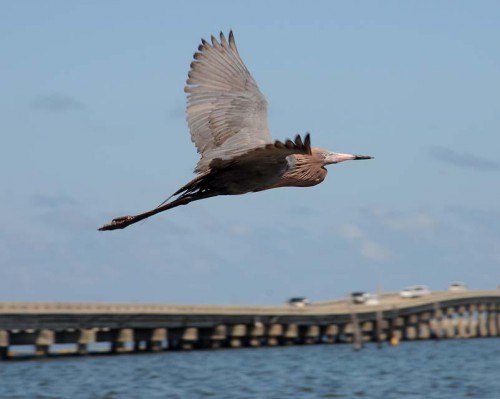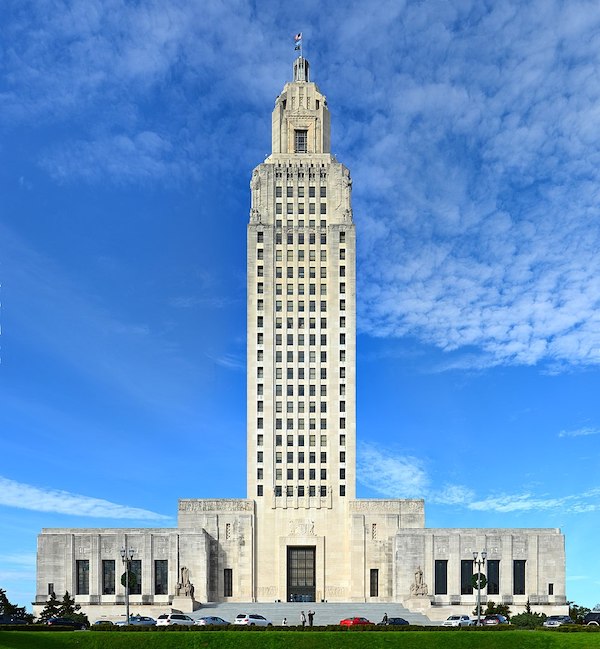Lafourche Parish’s eastern wetlands protected from oil
May 26, 2010
Memorial Day a time to remember, or forget
May 28, 2010Communication between BP, the oil giant responsible for the oil spill in the Gulf of Mexico, and local leaders is lagging. Town hall meetings across the state are much the same, sharing common themes of disappointment and contention. Political leaders are on the fence, their fingers crossed.
Discussions throughout the area have quickly turned from stopping the oil to cleaning it up. Blame has fallen on BP and officials from the Coast Guard who’ve adamantly told locals to let them handle response efforts. For some, those efforts have come too late.
“We have been frustrated with the disjointed effort to date that has too often meant too little too late to stop the oil from hitting our coast. We need folks in each basin that can mobilize resources quickly to contain oil when it arrives, not wait 24 hours or 48 hours,” Gov. Bobby Jindal said in a press release.
Jindal met with U.S. Department of Homeland Security Secretary Janet Napolitano, U.S. Department of Interior Secretary Ken Salazar, Coast Guard Admiral Mary Landry, and BP COO Doug Suttles on Monday to discuss the latest updates, urging involved parties to move more quickly.
“BP is the Responsible Party but we need the federal government to make sure they are held accountable and that they are indeed responsible. Our way of life depends on it. The actions taken to respond to this oil today are determining the future of our state,” explained Jindal. That future, on many fronts, is looking uncertain.
More than 130,000 feet of boom is still waiting to be deployed throughout the state. After multiple requests for more supplies, a mere 5,040 feet were received in the last 24 hours.
During a town hall meeting at the Houma Auditorium, U.S. Rep. Charlie Melancon also pinned blame to the oil tycoon. “BP is the responsible party. The buck will stop there,” he said. Like many before him, Melancon contended that a local response led by area fisherman who know the waters like the back of their hand could work wonders. Getting federal officials to understand that, though, has proven to be the hardest task to date.
Terrebonne Parish President Michel Claudet said he was “upset with BP,” claming “…there is some sort of disconnect going on between the command centers in the field.”
The Archdiocese of New Orleans was recently granted money to assist fisherman in St. Bernard, Plaquemines, Jefferson and Orleans parishes. Claudet said BP told him some of those funds would be shifted to nearby communities in places like Terrebonne and Lafourche. “Well, Houma and Thibodaux didn’t get that money,” he claimed. “Lafourche and Terrebonne were left out.”
Officials with BP who attended the meeting said they have hosted about 100 town halls across the state.
Darryl Willis, a BP spokesperson, noted that more than 20,000 claims have been received since the spill. “And we’ve actually paid about 9,000 claims so far, or $27 million in payments. And, of the claims, 5,000 are from Louisiana, resulting in payments totaling $16 million.”
Akin to the statements BP and the Coast Guard have been making since the crude began rushing from the well on April 20, about 37 days ago, Willis told listeners the company is going to stick by locals until the oil is “…sorted out and cleaned up.”
Willis vowed to grant Claudet $100,000 to assist local fisherman.
BP also announced Monday it will be setting aside $500 million to open a research program to study the impacts of the spill on the Gulf of Mexico.
“BP has made a commitment to doing everything we can to lessen the impact of this tragic incident on the people and environment of the Gulf Coast. We must make every effort to understand that impact. This will be a key part of the process of restoration, and for improving the industry response capability for the future. There is an urgent need to ensure that the scientific community has access to the samples and the raw data it needs to begin this work,” said Tony Hayward, BP’s chief executive, in a release.
– Howard Castay Jr. contributed to this report.
An oiled reddish egret flies above the water in Grand Isle, May 20. Oil from the Deepwater Horizon/BP incident began washing up on beaches here exactly one month after the drilling unit exploded. * Photo by PETTY OFFICER 3RD CLASS PATRICK KELLEY / U.S. Coast Guard







